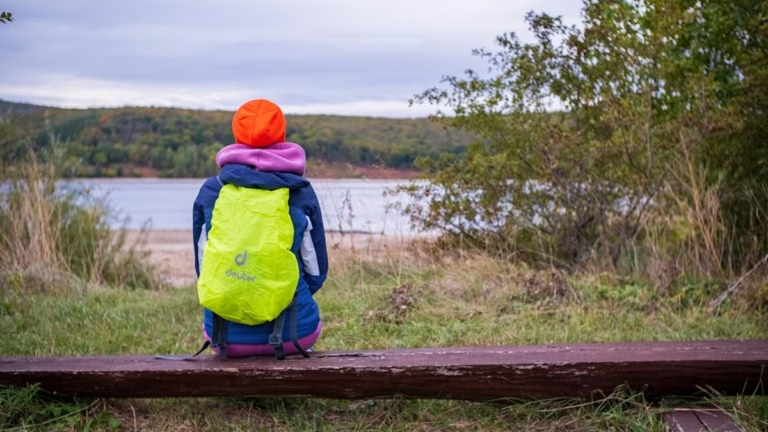Building Bone Density in Winter: Vitamin D and Weight-Bearing Exercises
Winter can be a challenging time for our bodies, especially when it comes to maintaining optimal bone density. The shorter days and colder weather often lead to reduced sun exposure, which in turn affects our Vitamin D levels. Combined with potential decreased physical activity, this can pose a risk to our skeletal health. But fear not! With the right strategies, you can effectively build and maintain strong bones throughout the winter months.
The Importance of Bone Density
Bone density refers to the amount of bone mineral in bone tissue. It’s a key indicator of bone strength and a crucial factor in preventing osteoporosis, a condition characterized by weak and brittle bones that are more prone to fractures. As we age, bone density naturally declines, but lifestyle factors play a significant role in how quickly and dramatically this decline occurs. Maintaining healthy bone density is therefore essential for overall health and well-being, enabling us to stay active and independent as we get older. Strong bones support our bodies, protect vital organs, and store essential minerals like calcium and phosphorus.
Vitamin D Winter and Bone Density
Vitamin D plays a vital role in calcium absorption, which is crucial for Building and maintaining strong bones. During the winter months, when sunlight is limited, our bodies produce less Vitamin D naturally. This deficiency can lead to decreased calcium absorption and, consequently, lower bone density.
Sources of Vitamin D Winter
Here are some ways to ensure you’re getting enough Vitamin D during the winter:
- Supplementation: Vitamin D supplements are a convenient and effective way to boost your levels, especially during the winter. Consult with your doctor to determine the appropriate dosage for your needs. The recommended daily intake is usually around 600-800 IU, but individual needs may vary.
- Dietary Sources: Incorporate Vitamin D-rich foods into your diet, such as fatty fish (salmon, tuna, mackerel), egg yolks, and fortified foods (milk, cereal, orange juice). While food sources alone may not be sufficient to meet your daily needs during the winter, they can contribute to your overall intake.
- Limited Sun Exposure: Even in winter, spending a few minutes outdoors in the sun (with exposed skin, if possible and safe) can help your body produce some Vitamin D. However, be mindful of the UV index and avoid prolonged exposure that could lead to sunburn.
A study published in the Journal of Clinical Endocrinology & Metabolism found that Vitamin D supplementation significantly improved bone density in postmenopausal women during the winter months. This highlights the importance of addressing Vitamin D Winter deficiencies for optimal bone health.
Weight-Bearing Exercises for Bone Density
In addition to Vitamin D, weight-bearing exercises are essential for Building and maintaining bone density. These exercises force your body to work against gravity, stimulating bone cells and promoting bone growth. They are a crucial part of any Osteoporosis Prevention strategy.
Types of Weight-Bearing Exercises
Here are some examples of effective weight-bearing exercises:
- Walking: A simple and accessible exercise that can be easily incorporated into your daily routine.
- Running: A more intense form of weight-bearing exercise that provides a greater stimulus for bone growth.
- Dancing: A fun and engaging way to improve bone density and cardiovascular health.
- Jumping Rope: A high-impact exercise that can significantly increase bone density.
- Strength Training: Using weights or resistance bands to build muscle and strengthen bones. Examples include squats, lunges, push-ups, and lifting weights.
Tips for Incorporating Weight-Bearing Exercises
- Start Slowly: If you’re new to weight-bearing exercises, begin with low-impact activities and gradually increase the intensity and duration.
- Listen to Your Body: Pay attention to any pain or discomfort and stop if you need to.
- Consistency is Key: Aim for at least 30 minutes of weight-bearing exercise most days of the week.
- Vary Your Routine: Incorporate different types of weight-bearing exercises to target different muscle groups and bones.
- Consult with a Professional: If you have any underlying health conditions, consult with your doctor or a physical therapist before starting a new exercise program.
A study published in the Journal of Bone and Mineral Research demonstrated that regular weight-bearing exercises significantly increased bone density in both men and women, regardless of age. This underscores the importance of incorporating these exercises into your routine for Osteoporosis Prevention.
Other Factors Affecting Bone Density
While Vitamin D Winter and weight-bearing exercises are crucial, other factors also contribute to bone density:
- Calcium Intake: Ensure you’re getting enough calcium through your diet or supplements.
- Protein Intake: Adequate protein intake is essential for bone health.
- Smoking and Alcohol Consumption: Avoid smoking and limit alcohol consumption, as both can negatively impact bone density.
- Underlying Medical Conditions: Certain medical conditions, such as hyperthyroidism and celiac disease, can affect bone density.
- Medications: Some medications can also impact bone health. Discuss any concerns with your doctor.
Case Study: Winter Bone Health Success
Sarah, a 60-year-old woman, was diagnosed with osteopenia (low bone density) during the winter months. Following her doctor’s advice, she started taking Vitamin D supplements and incorporated daily walks and strength training exercises into her routine. Within a year, her bone density had improved significantly, and she was able to maintain a healthy and active lifestyle. Sarah’s case highlights the power of proactive measures in addressing Winter Bone Health concerns.
References
-
Harvard T.H. Chan School of Public Health Nutrition Source
– Evidence-based nutrition guidance from Harvard researchers. -
Academy of Nutrition and Dietetics
– Professional nutrition resources and dietary guidelines. -
Centers for Disease Control and Prevention Nutrition
– Government nutrition recommendations and research.
Conclusion
Maintaining healthy bone density during the winter requires a multifaceted approach. By prioritizing Vitamin D intake, engaging in regular weight-bearing exercises, and addressing other lifestyle factors, you can significantly Increase Bone Mass and reduce your risk of osteoporosis. Don’t let the winter months compromise your skeletal health. Take proactive steps to build and maintain strong bones, ensuring a healthy and active future. Remember to consult with your healthcare provider for personalized advice and guidance on Osteoporosis Prevention and Winter Bone Health strategies. They can assess your individual needs and recommend the best course of action to optimize your bone density.





